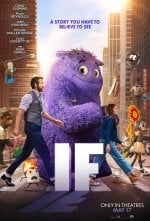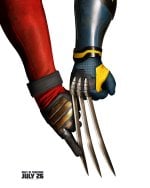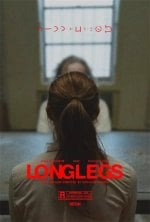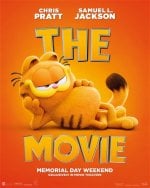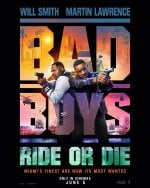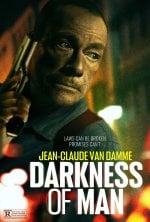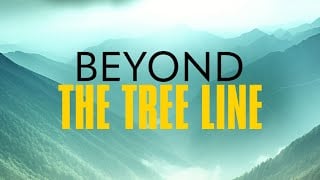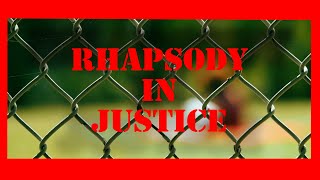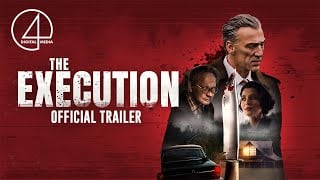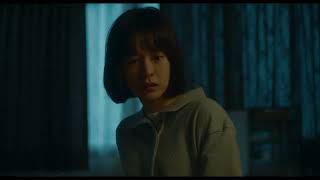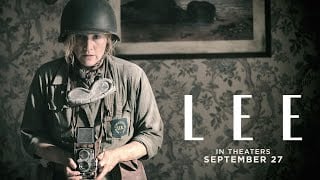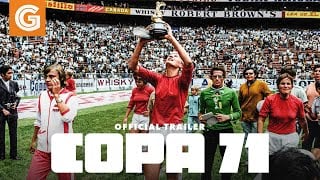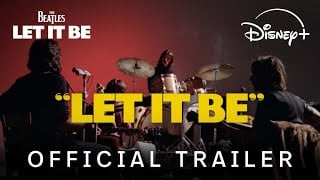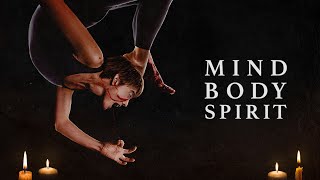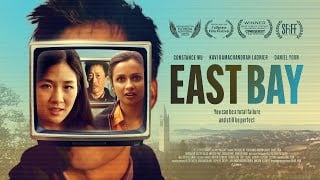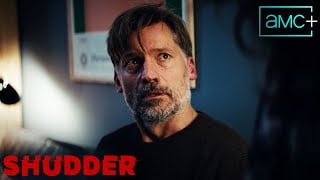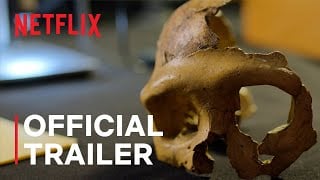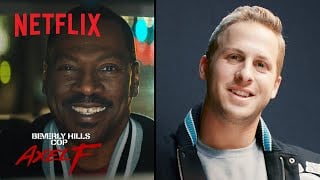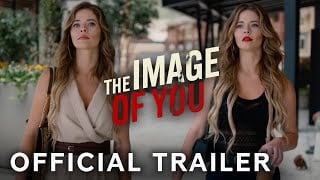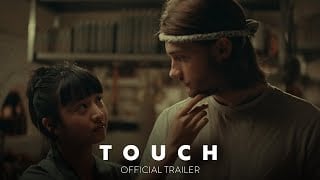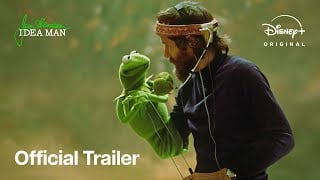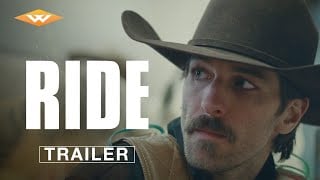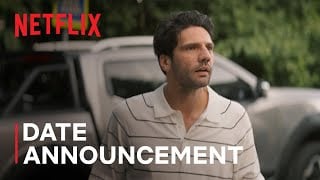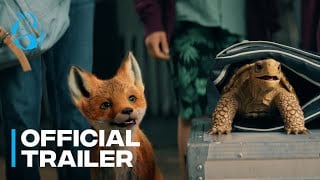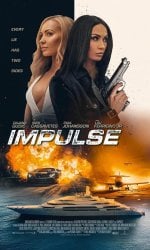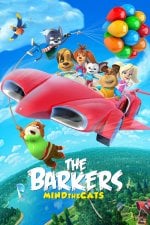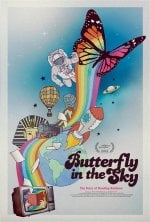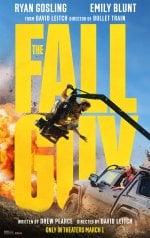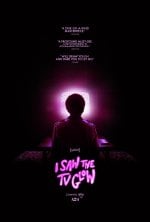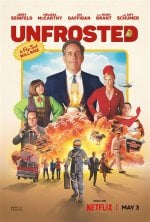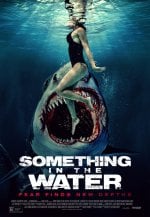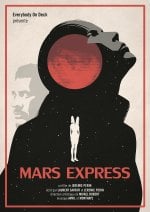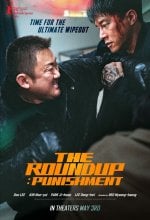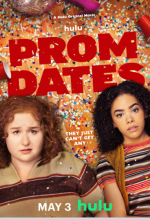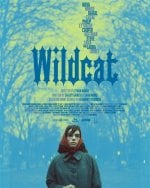Latest Movie Trailers & Videos
Beyond The Tree Line
Official Trailer
Rhapsody In Justice
Official Trailer
The Execution
Official Trailer
Sleep
Official Trailer
Lee
Official Teaser
Bad Behaviour
Official Trailer
Copa 71
Official Trailer
Let It Be
Official Trailer
The Shameless
Official Trailer
Mufasa: The Lion King
Official Teaser
Living with Leopards
Official Trailer
Mind Body Spirit
Official Trailer
This Time Next Year
Official Trailer
East Bay
Official Trailer
Nightwatch: Demons Are Forever
Official Trailer
Secrets of the Neanderthals
Official Trailer
Beverly Hills Cop: Axel F
Clip:Jared Goff Learned Detroit from Axel Foley
The Image of You
Official Trailer
Touch
Official Trailer
Jim Henson Idea Man
Official Trailer
Ride
Official Trailer
In Good Hands 2
Date Announcement
School of Magical Animals 2
Official Trailer
Summer Camp
Official Trailer
New Movies Coming Out This Week
Impulse
VOD / Digital
The Barkers: Mind the C...
VOD / Digital
My Divorce Party
VOD / Digital
Stargazer
VOD / Digital
Butterfly in the Sky
VOD / Digital
The Idea of You
Prime Video
Jeanne du Barry
Limited
The Contestant
Hulu
Secrets of the Neandert...
Netflix
Star Wars: Episode I - ...
Nationwide
The Fall Guy
Nationwide
I Saw The TV Glow
Nationwide
Dragonkeeper
Limited
Unfrosted
Netflix
Chief of Station
Limited
New Life
Limited
Something in the Water
Limited
Mars Express
Limited
The Roundup: Punishment
Limited
Prom Dates
Hulu
Catching Fire: The Stor...
Limited
Evil Does Not Exist
Limited
Wildcat
Limited
A.I.: Artificial Intelligence Movie Review
originally posted many years ago
A.I.: Artificial Intelligence is Steven Spielberg's first film since Saving Private Ryan three years ago. It may also be noted that it is his first true science-fiction film since 1982's E.T.: The Extra-Terrestrial. It is certainly interesting to examine the differences between Spielberg's storytelling techniques in these two remarkable films, and the urge to compare A.I. to Close Encounters of the Third Kind-which, to me, will always be Spielberg's masterpiece (and the last film before A.I. he scripted himself)-is irresistible. A.I. is one of those films that will either be seen as a masterpiece or as a silly assembly of plot threads. This may result from it's duel handling by two film masters-the late Stanley Kubrick, who hatched the idea and drew up thousands of notes, only to ask Spielberg to make it. At first reluctant, Spielberg tackled the project after Kubrick's death when his wife, Catharine, handed him the notes for the film. Either way, however, this collaboration is impossible to overlook.
The film opens with Professor Allen Hobby (underplayed magnificently by William Hurt) explaining to his futuristic team of robot builders at "Cybertronix: New Jersey" his plans for a new robot that will have the ability to love. The team agrees to produce it, and the young boy-named David (Haley Joel Osment)-is given a trial run at the home of one of Cybertronix' employees, Henry Swinton (Sam Robards), whose son is currently in a cryogenic chamber in an attempt to revive him from an incurable disease. This mother, Monica Swinton (played by British actress Frances O'Connor) initially denies David, then takes him in. However, when her true son is resurrected, problems arise with David, and he is ordered to be destroyed by "Henry." Monica, who has grown to love the robot boy, cannot dispose of him, and instead leaves him in the woods with his pet bear Teddy and a hurried bit of advice. David then proceeds on a journey that will take him to some very imaginative (and simultaenosly disturbing) places in this future world.
Spielberg has wisely divided the movie into three pieces, and each one is, in turn, very Spielbergian. The opening act, described above, plays like a child's dream, with John Williams' light music peppering the sterile Swinton mansion. It's very reminiscent of E.T., with alien life trying to adapt to Earth-thankfully, this bit isn't as sentimental as that blockbuster was. The middle third of the film showcases Spielberg's creativity (how much of this is drawn from Kubrick, I'll never know; but each successive scene is a perfect marriage of their minds), as well as his ability to create tense action scenes. The final act is dreamy, thought-provoking Spielberg combined with an edgy, realistic Kubrick, with maybe a dash of Disney in for good measure. It is mesmerizing; like the entire film, the tension in scenes is often unbearable.
The movie carries an air of importance, and while this may be perceived as it's greatest strength, it may also be responsible for its flaws. Too often my imagination was stretched so far that I found it difficult to take some areas of the film seriously. For instance, David meets Gigolo Joe (Jude Law) in the middle third of the film. While their relationship is something to behold (the two rarely speak, yet the connection is amazing), the entire idea of Joe is a little odd and a little off-putting, especially to those who were expecting E.T.-like fare. The ending, while amazing, requires you to detach your brain a la 2001: A Space Odyssey-and much of what you've learned from the film-while somehow manage to compute what is going on.
And what offsets the movie from being a disturbing, Clockwork Orange-esque experience? The almost-overdone theme of love. For once, a summer movie features a man with strong maternal relations, as David's entire journey is simply to see his mother. The theme gets a little annoying, especially when you recall that Kubrick, of all people, thought this up-Spielberg maintains that it was the most emphasized topic in his notes-but it does strike home. My nearly empty theater was in an extended weeping phase that lasted through the beginning of the credits.
The overall formula for Spielberg flicks, however, remains intact. He still doesn't present us with a concrete enemy-rather, good people with differing conflicts emerge. This is what makes him such a great filmmaker, especially in the case of A.I.: he trades in sentimental optimism for realistic hope. While he makes no promises, he leaves a huge buffet of emotions for the viewer to choose from-I often find that ones personality is best expressed by their reaction to Close Encounters or E.T.
The effects, needless to say, are amazing. There's a scene at the end that is perhaps the most impressive visual journey I've ever experienced. The budget for A.I. is nothing extraordinary (not by today's standards…where are you, Town & Country?), but they're beyond impressive. Even more remarkable is that they rarely get in the way of the storytelling, and the only scenes that do are ones you see in the trailers. Perhaps one of the film's smaller assets is another stroke of genius by the world's foremost storyteller: the companion Teddy is perhaps the most likable sidekick in recent memory, yet he never cracks jokes or one-liners-instead, he's a quiet little doll that is kind and unassuming.
Opinions over A.I. will vary, and expectantly so. However, no moviegoer can or should ignore it, both as a lasting love letter from Stanley Kubrick or a testament to the brilliance of Steven Spielberg.
The film opens with Professor Allen Hobby (underplayed magnificently by William Hurt) explaining to his futuristic team of robot builders at "Cybertronix: New Jersey" his plans for a new robot that will have the ability to love. The team agrees to produce it, and the young boy-named David (Haley Joel Osment)-is given a trial run at the home of one of Cybertronix' employees, Henry Swinton (Sam Robards), whose son is currently in a cryogenic chamber in an attempt to revive him from an incurable disease. This mother, Monica Swinton (played by British actress Frances O'Connor) initially denies David, then takes him in. However, when her true son is resurrected, problems arise with David, and he is ordered to be destroyed by "Henry." Monica, who has grown to love the robot boy, cannot dispose of him, and instead leaves him in the woods with his pet bear Teddy and a hurried bit of advice. David then proceeds on a journey that will take him to some very imaginative (and simultaenosly disturbing) places in this future world.
Spielberg has wisely divided the movie into three pieces, and each one is, in turn, very Spielbergian. The opening act, described above, plays like a child's dream, with John Williams' light music peppering the sterile Swinton mansion. It's very reminiscent of E.T., with alien life trying to adapt to Earth-thankfully, this bit isn't as sentimental as that blockbuster was. The middle third of the film showcases Spielberg's creativity (how much of this is drawn from Kubrick, I'll never know; but each successive scene is a perfect marriage of their minds), as well as his ability to create tense action scenes. The final act is dreamy, thought-provoking Spielberg combined with an edgy, realistic Kubrick, with maybe a dash of Disney in for good measure. It is mesmerizing; like the entire film, the tension in scenes is often unbearable.
The movie carries an air of importance, and while this may be perceived as it's greatest strength, it may also be responsible for its flaws. Too often my imagination was stretched so far that I found it difficult to take some areas of the film seriously. For instance, David meets Gigolo Joe (Jude Law) in the middle third of the film. While their relationship is something to behold (the two rarely speak, yet the connection is amazing), the entire idea of Joe is a little odd and a little off-putting, especially to those who were expecting E.T.-like fare. The ending, while amazing, requires you to detach your brain a la 2001: A Space Odyssey-and much of what you've learned from the film-while somehow manage to compute what is going on.
And what offsets the movie from being a disturbing, Clockwork Orange-esque experience? The almost-overdone theme of love. For once, a summer movie features a man with strong maternal relations, as David's entire journey is simply to see his mother. The theme gets a little annoying, especially when you recall that Kubrick, of all people, thought this up-Spielberg maintains that it was the most emphasized topic in his notes-but it does strike home. My nearly empty theater was in an extended weeping phase that lasted through the beginning of the credits.
The overall formula for Spielberg flicks, however, remains intact. He still doesn't present us with a concrete enemy-rather, good people with differing conflicts emerge. This is what makes him such a great filmmaker, especially in the case of A.I.: he trades in sentimental optimism for realistic hope. While he makes no promises, he leaves a huge buffet of emotions for the viewer to choose from-I often find that ones personality is best expressed by their reaction to Close Encounters or E.T.
The effects, needless to say, are amazing. There's a scene at the end that is perhaps the most impressive visual journey I've ever experienced. The budget for A.I. is nothing extraordinary (not by today's standards…where are you, Town & Country?), but they're beyond impressive. Even more remarkable is that they rarely get in the way of the storytelling, and the only scenes that do are ones you see in the trailers. Perhaps one of the film's smaller assets is another stroke of genius by the world's foremost storyteller: the companion Teddy is perhaps the most likable sidekick in recent memory, yet he never cracks jokes or one-liners-instead, he's a quiet little doll that is kind and unassuming.
Opinions over A.I. will vary, and expectantly so. However, no moviegoer can or should ignore it, both as a lasting love letter from Stanley Kubrick or a testament to the brilliance of Steven Spielberg.
You're browsing the archives, check out the latest movie news.
